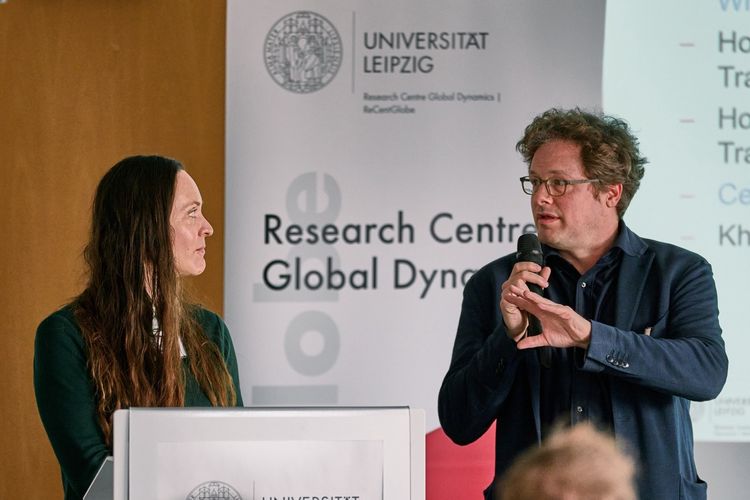Following last year's focus on the connections between global crises and epistemic fragmentation, the 2024 annual conference was dedicated to the diverse interactions between technological developments, globalization processes and resource flows. Particular attention was paid to the influence of technological innovations on the handling and distribution of resources in various regional contexts in their respective global interdependencies.
Going beyond the understanding of technologization as a driver of globalization, the annual conference historicized technology as an actor in various ecological and socio-economic contexts. The theoretical framework for this approach was provided by the keynote lecture by Richard Rottenburg, who explained what technologization could look like on a planetary level, taking decolonial approaches into account. To this end, he described the connections between the spread of technologies in different contexts and the impact of technology on the routinization of lifeworlds on the one hand and the creation of meaning on the other. Building on these considerations, he observed that technologization is inherently contradictory, as it is oriented towards infinity, while human existence is finite. In this he also reacted to the increasingly urgent realization that technologies can be not only be seen as solutions but also as causes of historical and current (environmental) problems.
The potentials and limits of the transformative power of technological innovation as well as the beneficial and harmful effects of technologization were also examined by the participating scientists from all career stages in five empirical panels and a round table. The topics of these panels ranged from considerations of ground as a resource to ethnographic studies on the influence of technologization on medical infrastructures and labor markets and investigations into the material consequences of the global energy transition to an interdisciplinary analysis of transformation processes in floodplains. All these panels shared the combination of historical with contemporary perspectives as well as a critical view of technology-induced transformation. A topic that was also taken up by the "Transformative Practices" round table of the joint Halle-Leipzig Transregio Initiative. Eight of the initiative's PIs presented their respective subject-specific methodological and content-related approaches to the topic and thus developed interfaces and synergy effects of the Transregio's future sub-projects.










